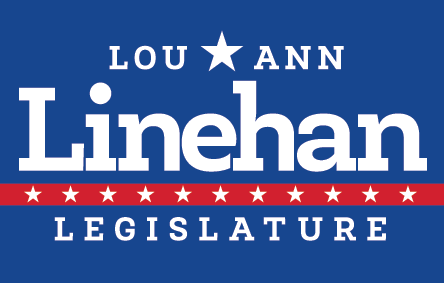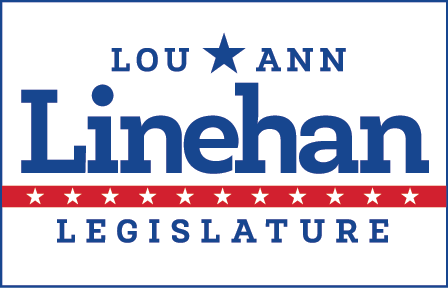15 Jun Nebraska Farm Bureau applauds law allowing property tax relief for victims of natural disasters
By Robert Pore, The Grand Island Independent —
A recent change in state law that will allow disaster victims to seek a reduction in the value of damaged real property for tax purposes, is being applauded by the Nebraska Farm Bureau.
Farm Bureau is encouraging Nebraskans who’ve suffered damage to real property as a result of flooding or other natural disasters to be aware of Nebraskans whose real property was destroyed on or after Jan. 1 and before July 1 can file a “Report of Destroyed Real Property – Form 425” with the county assessor and county clerk to apply for reassessment. Property owners must file the report by July 15.
“We applaud the Legislature’s passage and Gov. Pete Ricketts signing of LB 512. We know many Nebraskans are still working through catastrophic losses caused by this spring’s floods,” said Steve Nelson, president of the Nebraska Farm Bureau. “This is good legislation and a positive step in the right direction to help those in need today, but also to help those in the future who suffer from disaster related circumstances well beyond their control.”
The “Form 425” application can be accessed on the Nebraska Department of Revenue Property Assessment Division website or through the Nebraska Farm Bureau website at www.nefb.org. Separate Form 425 applications for damaged property are required to be filed for each parcel of damaged property.
Under the new law, real property damage must have occurred as the result of a disastrous event, including, but not limited to, fire, earthquake, flood, tornado, or other natural event which significantly affects the assessed value of real property.
Destroyed real property means real property that suffers significant property damage resulting from the above events on or after Jan. 1and before July 1 of the current assessment year. Destroyed real property does not include property damage caused by the owner of the property or an occupant of leased property.
Significant property damage means:
— Damage to an improvement exceeding 20 percent of the improvement’s assessed value in the current tax year as determined by the assessor;
— Damage to the land exceeding 20 percent of a parcel’s assessed land value in the current tax year as determined by the county assessor; or
— Damage exceeding 20 percent of the property’s assessed value in the current tax year as determined by the county assessor if:
— The property is in an area that has been declared a disaster area by the governor, and
— A housing inspector or health inspector has determined the property is uninhabitable or unlivable.
The county board of equalization will consider the report to determine any adjustments to the assessed value of the destroyed real property for the current year.
The county board of equalization must act upon this report on or after June 1 and on or before July 25, or on or before Aug. 10 if the board has adopted a resolution to extend the deadline to hear protests under Nebraska Revised Statute 77-1502, and must send a notice of the reassessment value for the destroyed real property to the property owner.
“It’s important Nebraskans are aware of this new law and we hope those who meet the qualifications now, and in the future, will be able to utilize it in their recovery efforts,” Nelson said. “We thank Sen. Steve Erdman for his work to bring this measure to the Legislature and Sen. Lou Ann Linehan for helping push this bill across the finish line.”
LB512 ensures that damages from natural disasters are taken into account when assessing property for tax purposes and was one of a number of property tax measures singed into law by Gov. Ricketts during the recent legislative session.
LB103 protects Nebraskans from automatic tax hikes when property values go up.
Ricketts signed LB103 to give Nebraskans greater insight and input into proposed property tax increases. The bill requires taxing entities — like school districts, cities, and counties — to hold a public hearing and vote before they can raise property taxes. Previously, as property valuations went up, property taxes would often soar higher and higher — even as tax rates remained the same. This meant Nebraskans paid more in property taxes without ever debating or approving the increased amount.
With LB103 signed into law, Nebraskans will now receive public notice whenever a political subdivision wants to increase its property tax receipts.
“Nebraskans deserve to be fully informed, and to have a fair say, before they pay more in property taxes,” Ricketts said. “This bill adds much-needed transparency and accountability to the property taxation process.”
LB294, the mainline appropriations bill for 2019-2021, increases the Property Tax Credit Relief Fund by $51 million per year.
The bill includes Rickett’s recommendation to add $51 million annually to the Property Tax Credit Relief Fund in the 2019-21 budget. This represents a 23% increase for a total of $275 million in property tax relief per year for Nebraskans.
“The key to delivering real, sustainable property tax relief is to control spending,” Ricketts sald. “The State budget limits spending increases to less than 3%, while raising the Property Tax Credit Relief Fund by 23%. Over the last five years, Senators and I have successfully worked together to nearly double the amount of direct relief to Nebraska’s farmers, ranchers, and homeowners.”
Taxpayers will see the additional relief when their property tax statements are sent out in December 2019.

